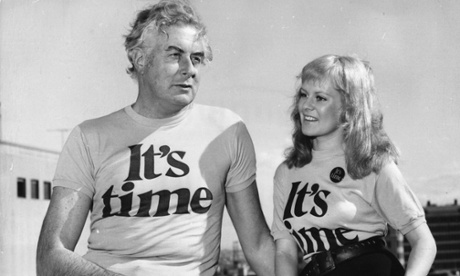
Something about government health care just drives conservatives crazy. Republicans, say critics, have lost their minds because they let their most rightwing members drag them into the government shutdown to destroy Obamacare.
Australians scorn the dysfunction in Washington but 40 years ago we fought the same do-or-die struggle over healthcare. Legislating for Medibank stretched the Australian constitution and was central to Coalition complaints about Gough Whitlam’s excessive spending. And as soon as the Fraser government came to power, it repealed the national insurance program.
Labor and Liberals now treat Medicare as a sacred cow, revered since the dawn of time. In truth, though, it’s less than 30 years old and was significantly amended by the Howard government’s requirement that higher income earners buy private insurance.
Why was Medibank so contentious in the 1970s? The middle class could afford health insurance and paying for it was a mark of prudence and self-sufficiency. People with insurance believed the system worked very well.
The Australian Medical Association and its political allies in the Coalition denounced Medibank as "socialised medicine". Health spokesman Don Chipp said the scheme would create "anarchy in Australia".
Insured patients dreaded the prospect of being herded with poor patients into shabby public hospital wards. The lazy and feckless would crowd waiting rooms and government clinics would destroy private practice. It promised the middle class nothing but higher taxes and lower standards.
Medibank passed at the one and only joint sitting in Australian history and in 1975 the Coalition resorted to blocking supply to reverse it. That’s the tactic Republicans used with the government shutdown.
Over the last four years, the argument over Obamacare has replayed the same fears. Working age Americans usually get health insurance as a benefit from their employer. As Senator Ted Cruz, mastermind of the shutdown, recently told NBC’s Meet the Press: "If you want people to get health insurance, the best way for people to get health insurance is to get a job."
Republicans have made this argument because their constituents fear that greater regulation or universal insurance will mean losing access to the health care the affluent now enjoy. This is the subtext of talk about Obamacare ruining "the greatest health care system in the world".
Since the Reagan years, Republicans have implied that government programs take from whites to spend on African-Americans and illegal immigrants. That’s how Reagan consolidated Republican control of the South and drew in the so-called "Reagan Democrats" – white suburbanites who increasingly felt they were paying taxes for people who were gaming the system.
Even as they argued the health care system would be overwhelmed with bureaucracy, opponents of Obamacare, as with Medibank in Australia, imagined the undeserving would reap the benefits.
That prospect so enrages conservative Republicans and their constituents that the stopgap deal that has the American government operating again won’t change any minds. As Malcolm Fraser’s Coalition did in 1975, Republicans will continue to promise repeal.
They should probably look at what happened back when Medibank was repealed. Without Obamacare, the emergency room will again be the main healthcare option for the less affluent – many of them people who typically vote for Republicans in the South and the Midwest. Those Republicans often think the health reform is strictly for minorities on welfare even when they would benefit.
More importantly, the problems with voluntary private insurance will not disappear. Americans with good jobs will feel the system works well enough but the government will lose all leverage in controlling prices and expanding access.
Labor revamped its health policy in 1983 and it was reborn as Medicare. This time it lasted because enough people had come to see that nothing else would provide universal and affordable care .
If Obamacare continues to operate, as seems likely, the much bigger danger lies ahead for Democrats. Regulating health insurance, as the Affordable Care Act does, can bring big political rewards. My mother once feared that Medibank would create a bureaucratic nightmare but now she approves. And why not? The nearby general practice is the same friendly family doctors she once feared would disappear. "The girls in the office know me," she says. "They’ll squeeze me in even if I don’t have an appointment."
Judging by the Australian experience, American voters, though, will judge, and judge harshly, if health care is mismanaged. Democrats have made a world in which they can no longer blame problems on greedy insurance companies and pharmaceutical manufacturers. If people have to buy health insurance, they will expect the system to work. American politicians can look forward to endless questions about health funding and hospital waiting lists because with Obamacare they own the system.

